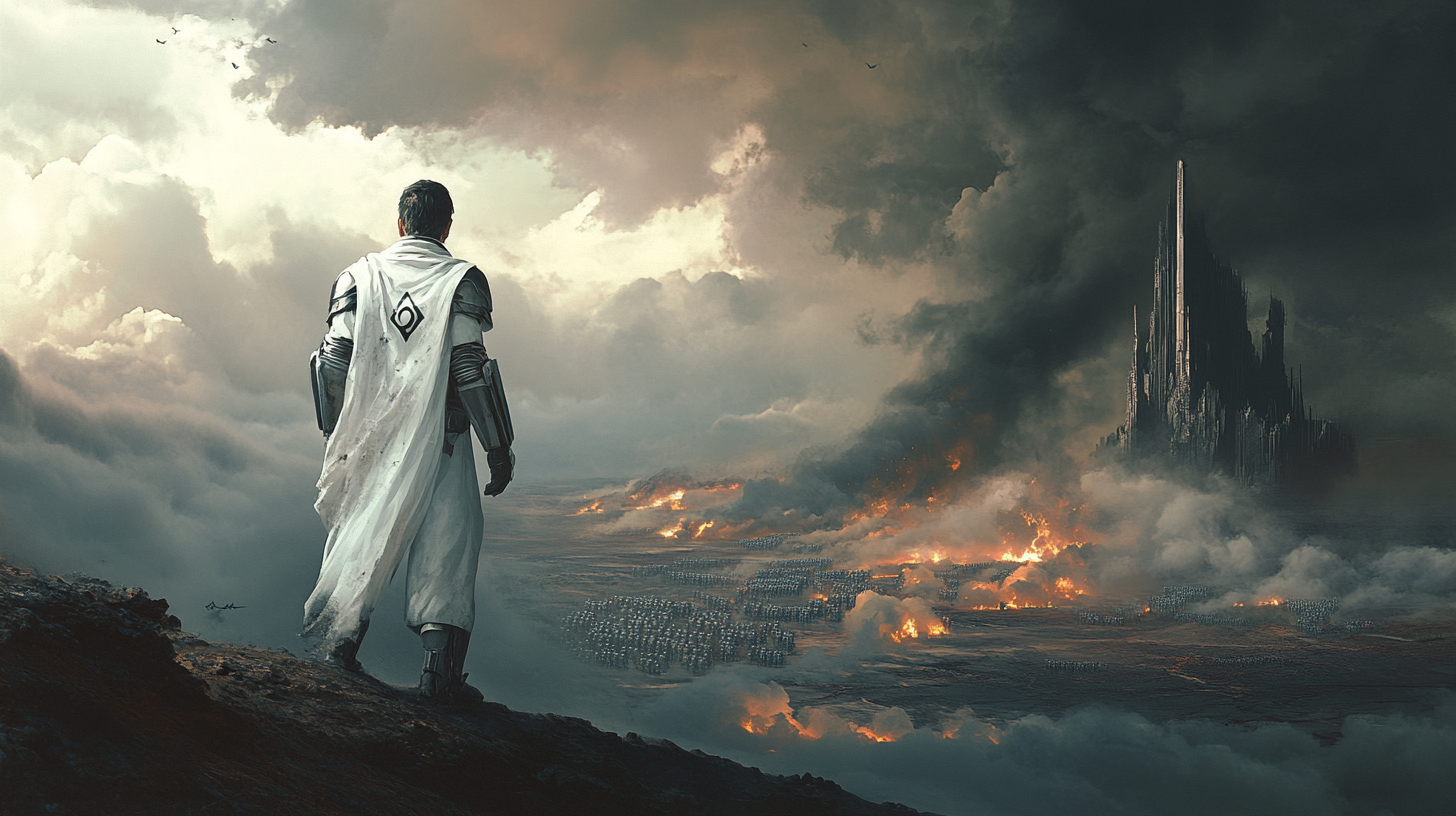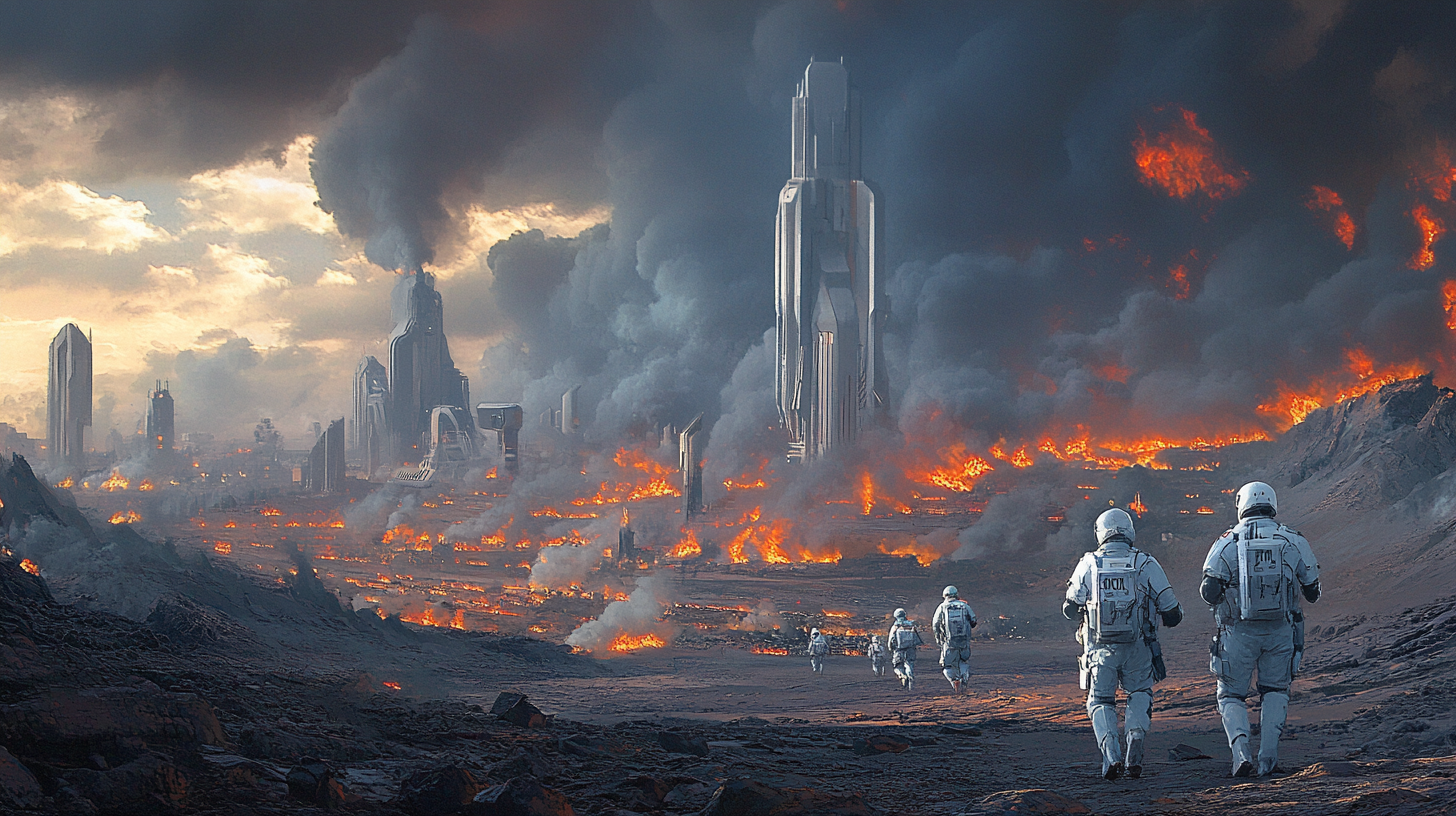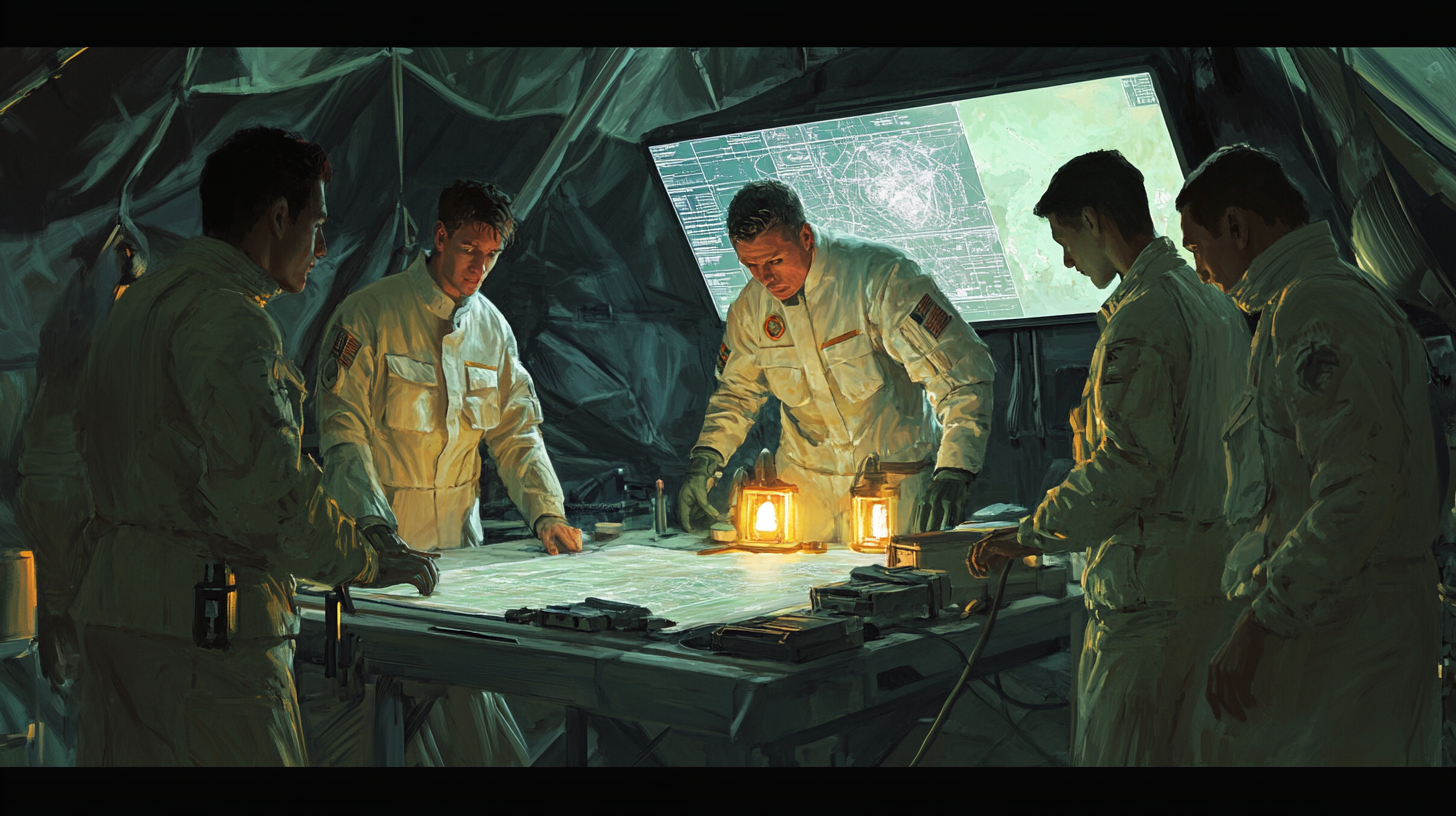John Christian Falkenberg Commands with Honor
John Christian Falkenberg in "The Mercenary" leads not with ambition but with discipline and principle, preserving civilization through honor, strategy, and a soldier’s burdened wisdom.

A Commander in the Ruins of Empire
"The Mercenary" is set in the sprawling CoDominium universe, a future where Earth's superpowers have merged into a tenuous alliance to hold civilization together. This alliance is cracking. On distant colony worlds, central authority falters, local governments collapse, and violence fills the void.
Into this chaos steps Colonel John Christian Falkenberg, a man trained by the CoDominium's elite but unshackled from its bureaucracy. He does not serve for glory or conquest. He commands because someone must, and he does so with a clear understanding of what is at stake.
Falkenberg is no mere soldier of fortune. He carries with him a code, one shaped by classical virtue, personal discipline, and a hard-earned awareness of human failure.
In a universe where power tempts weaker men into tyranny or corruption, Falkenberg leads with a blend of moral clarity and cold precision. He understands that strategy alone wins battles, but strategy guided by honor wins peace.
In "The Mercenary," Jerry Pournelle presents him as a bulwark against chaos—a man who brings order not through ideology, but through example. Falkenberg's legion may be for hire, but under his command, they fight not for coin but for civilization itself.
The Shape of Honor in a Soldier's World
Falkenberg's world is one where power often falls into the hands of the unworthy. Governments fail. Law disintegrates. Yet Falkenberg carries himself as though the virtues of Rome still matter.
In "The Mercenary," honor is not ceremonial. It is active and defining. Falkenberg's decisions are shaped not just by tactical considerations but by an unwavering internal standard. He is a commander who observes the battlefield and then chooses a course that preserves human dignity whenever possible.

One of the clearest expressions of his code comes after a bloody mountain engagement. Falkenberg offers a truce so the enemy may retrieve their dead. His own men are surprised. He explains with little fanfare that honor is satisfied. To him, war does not erase the value of life or the worth of a worthy opponent. It clarifies it.
This sense of proportion governs how he uses force. When he orders his men to fire into a stadium packed with rebels on Hadley, it is not bloodlust. It is necessity. He calculates what must be done to prevent civil collapse, and he chooses the option that secures peace with the least long-term cost. That kind of judgment does not emerge from manuals. It comes from the weight of experience and a conscience that still listens.
Under Falkenberg's command, soldiers do not become beasts. They remain men. He insists on discipline not just to win, but to stay human. That discipline is rooted in honor, and honor defines everything he does.
Strategy for Peace, Not Just Victory
Falkenberg never treats war as a contest of brute strength. He treats it as a tool of governance. His strategic thinking is not confined to the battlefield. It extends to the town hall, the power plant, and the schoolhouse. In "The Mercenary," every operation he commands is part of a larger design to preserve order and allow civilization to take root where it might otherwise die.

He understands that chaos feeds on hesitation. Where lesser men would wait for reinforcements or waste time on diplomacy with fanatics, Falkenberg acts. He uses speed, deception, and precision not to impress, but to resolve conflicts before they rot into prolonged disasters. When suppressing a labor revolt on Santiago, for example, he does not rely on force alone. He studies the social structure, identifies pressure points, and breaks the rebellion with minimal violence by targeting leadership and cutting off supply chains. It is not a glamorous approach, but it works.
What sets Falkenberg apart is that he never forgets what comes after the shooting stops. He advises governors, restores communication lines, and ensures that those he defends can manage their own affairs. His men are trained not just to fight but to rebuild. They are soldiers, civil engineers, enforcers, and teachers.
For Falkenberg, strategy is always tied to outcomes beyond the campaign map. His victories are judged not by casualty counts, but by what the population does when the legion pulls out. If markets reopen, if courts resume session, if children walk to school again, then the campaign succeeded.
That kind of thinking demands discipline. It demands imagination. And above all, it demands a commander who sees war not as destruction, but as the painful work of restoration. That is what Falkenberg brings to every world he is asked to save.
Loyalty and Legacy in the Legion
Falkenberg commands more than soldiers. He commands belief. His men do not follow him because of contracts or promises of wealth. They follow because they trust him. In "The Mercenary," loyalty is earned through action, consistency, and an unspoken understanding that Falkenberg will never ask more from others than he demands of himself.

The legion he shapes is not just a fighting force. It is a community bound by purpose. Discipline is not enforced through fear, but through example. Falkenberg lives by the same rules he gives his men. He expects restraint, respect for civilians, and professionalism in the field. Over time, these values harden into a culture—a standard of conduct that outlives any one campaign.
Falkenberg's leadership style is deeply personal. He knows his officers. He mentors them. He places younger commanders in situations where they can grow and tests them without abandoning them. This quiet investment pays off. The legion produces men who can lead, judge, and build. Men who think beyond their rifles.
In this way, Falkenberg does not just win wars. He builds institutions. His legion becomes a stabilizing force that planets request by name, not because they want mercenaries, but because they want Falkenberg-trained men. That reputation is not built in a day. It is the result of consistency, sacrifice, and a commitment to purpose that goes beyond pay.
Legacy, for Falkenberg, is not found in medals or monuments. It is found in the men who carry forward his code. It is found in the towns that still function because his legion passed through. And it is found in the quiet confidence of those who served under him, knowing they were part of something that mattered.
A Future Secured by Ancient Virtues
In the chaos of failing systems and desperate colonies, John Christian Falkenberg does not offer innovation. He offers memory. The memory of order. The memory of restraint. The memory of men who understood that power is not the same thing as justice.
In "The Mercenary," Pournelle gives readers a commander who looks forward by looking back. Falkenberg is not interested in reshaping humanity. He is interested in preserving it.
This approach gives Falkenberg a special place in the canon of military science fiction. Where many stories explore war as a spectacle or a tragedy, Pournelle's tale is more grounded. It is about responsibility. It is about what happens when the last reliable institution left is a man with a plan, a moral compass, and the will to act. Through Falkenberg, Pournelle reminds readers that civilization is not an accident. It must be protected, often by those willing to pay a steep price.
The character endures not because he is invincible, but because he is reliable. Because he chooses duty over indulgence. Because he understands that without discipline, freedom collapses. Falkenberg is not a hero in the modern sense. He is something older, something harder. He is a guardian. And in that role, he leaves behind more than battlefields. He leaves behind the possibility of peace.

